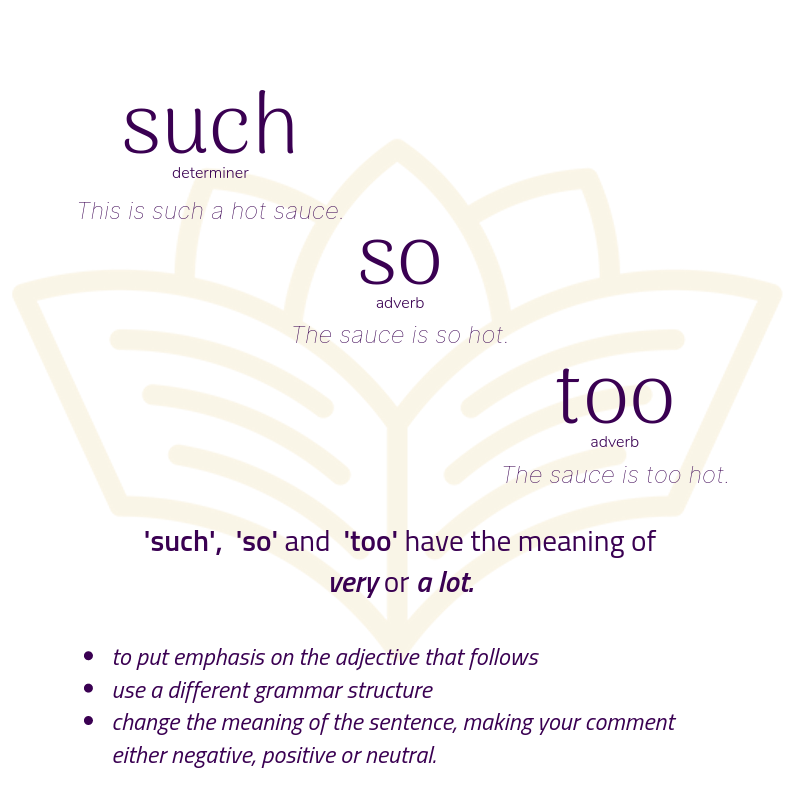English language learners often use 'such', 'so' and 'too' interchangeably…
"My sisters is such an annoying".
"The weather is too nice today".
"They are so good friends"
And, yes, they are similar and have a meaning alike; very - a lot, but each of them has a specific structure...
Let's clear up this confusion around the difference between 'such', 'so' and 'too'.
too/so + adjective
“The test was too hard.”
“The test was so hard.”
“Sevilla is so hot in Summer.”
“Sevilla is too hot in Summer.”
- so and too are a synonym of very and come before an adjective (i.e. the words “hard” and “sad”).
- so and too aren’t measurable but they do put emphasis on the adjective.
- so is used for neutral or positive situations
“The test was so hard, but I still completed it“.
“Sevilla is so hot in Summer, but I survive“. - too is used for negative situations
“The test was too hard, I couldn’t finish it”. “Sevilla is too hot in Summer, I can’t stay!“.
too + adjective/adverb + infinitive
“The pizza is too hot to eat”. = The pizza is extremely hot. I can’t eat it.
“You are too young to watch that movie”. = You are not old enough.
“I was too tired to do my homework”. = My tiredness was that strong, I had to sleep.
- too puts emphasis on negative results, meaning over the limit or more than a desired quantity/level.
*exception*
so + many/much/few/little noun
“There are so many balloons!” (countable noun)
“Mike drank so much beer.” (uncountable noun)
“He has so few friends.” (countable noun)
“We have so little time.” (uncountable noun.
- so can come before a noun when the adjectives many/much/few/little also come before the noun.
such (+article) + adjective + noun
“Lisa is such a beautiful woman .”
“Doug is such a fool.”
“I don’t want to swim in such dirty water“.
- such is a synonym of so and very, but can only be used when a noun follows the adjective.
(e.g. the words “woman”, “fool” and “water”). - such needs an article (the/a/an) when the noun is countable
(e.g. the words “woman” and “fool”). - such isn’t measurable but it does put emphasis on the adjective describing the noun.


843 thoughts on “The difference between ‘such’ – ‘so’ – ‘too’”